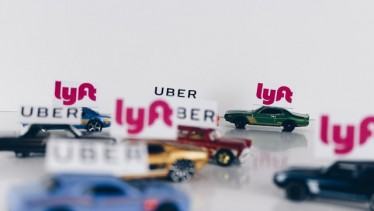Many small business owners hoped the labor shortage would end in 2021. Now that we're nearly halfway through 2022, it's time to accept the hard truth that the so-called Great Resignation is far from over. People across the globe are calling it quits, walking away from employment even if they don't have anything else lined up.
Small business owners and franchisees can either continue to hope for a sudden turnaround or learn to live with the hard reality of a world where people would rather stay home than show up to work.
To be perfectly frank, there's a lot to unpack in regards to the Great Resignation. Business owners are quick to think it's a product of laziness and poor work ethic en masse. Heaven forbid we look in the mirror and consider other contributing factors.
With that said, small business owners don't have time to wax philosophical over the nature of their present dilemma. They need solutions as soon as possible. With this in mind, let's take a look at six ways for business owners to solve the ongoing labor shortage:
Outsourcing
The digital nature of many internet-age businesses makes the potential of outsourcing more potent than ever. After all, why pay more for something you can get for less? A global outsourcing solutions service makes the process easier and more convenient. However, not every company can easily swap their domestic workforce for one overseas. But those who can are encouraged to do so as a way to offset the setbacks caused by the labor shortage.
Automation
State-of-the-art technology is always rendering jobs obsolete. Small business owners are always looking for ways to automate tasks and eliminate employees in the process. Given the cost-savings of such a transition, it's hard to hold it against them. With that said, business automation isn't automatic. There's trial and error involved, which often leads to confusion. But generally speaking, swapping labor for automation is a guaranteed win.
Improvements
As suggested in the introduction, every business - regardless of size - can afford to look inward and assess whether or not their labor woes are self-made. Are you paying a fair wage? Are you giving your workers enough hours to earn enough to live? Can management be improved? What about the hiring and recruitment part of your business? It's worth looking into.
Incentives
Perhaps the problem is the effort your company puts into rewarding employees for outstanding work? If workers feel like going the extra mile doesn't set them apart from the pack, they're unlikely to give it their all. Something as simple as a restaurant providing free meals to workers pulling the night shift can be enough to retain your workers. The same goes for rewards within the white-collar environment. Stop and consider how your business can do more to offer workers with incentives.
Self-Service
From self-service gas stations to self-checkout, the history of business is full of examples of companies convincing customers to do the work themselves. Businesses hurt by the ongoing labor shortage are encouraged to explore self-service options for their enterprise. It's not a feasible solution for every type of business, but those able to do so are at a significant advantage so long as the shortage continues.
Robotics
It might sound like science fiction, but robotic replacements are becoming a practical solution for businesses hurt by the labor shortage, as expected in industries like biotech but also in more traditional businesses like restaurants. For the time being, their functional capacity remains stuck in the butler phase - robots that can bring and retrieve objects from point A to point B - but the capabilities of modern robotics are improving every day. It won't be long before robotics can do things like pour concrete, perform oil changes, and fulfill deliveries.
The labor shortage seemingly activated by the pandemic continues. Business owners can either continue stubbornly trying to ride the wave or adapt and overcome it. It comes down to the utilization of technology as well as an ability to think outside the box. Come to think of it, isn't that the essence of entrepreneurship? All jokes aside, the solutions are there. It's a question of whether or not business owners are willing to seize on the opportunity to capitalize.
Julie Steinbeck is a freelance writer from Florida. She enjoys covering topics related to business, finance, and travel.




















